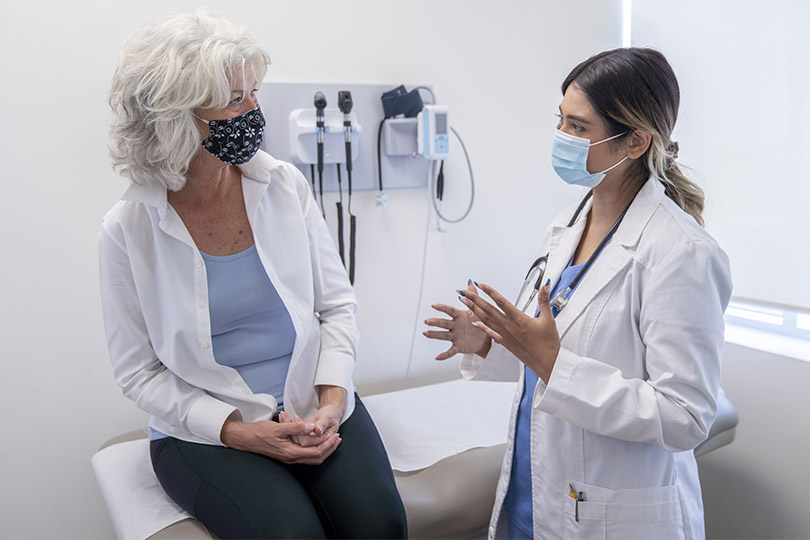Kidney Stones
Appointments
Kidney Stone Diagnosis and Prevention
If you’ve had kidney stones, you know they can cause extreme pain. What you might not realize is that when you’ve had one kidney stone, there’s a good chance you’ll have more.
The experts at Lahey Hospital & Medical Center can help. We bring together specialists in urology, endocrinology, interventional and diagnostic radiology and nephrology. We evaluate and treat kidney stones with the goal of preventing them in the future.
What Causes Kidney Stones?
Kidney stones form when there are high levels of calcium, oxalate, cystine or uric acid in the urine. These substances form crystals that accumulate in the kidney and slowly enlarge to form a kidney stone. Stones can also form when these substances are at normal levels if urine volume is very low.
Types of stones can include:
- Calcium oxalate
- Calcium phosphate
- Cystine
- Struvite
- Uric acid
Some patients have a genetic predisposition to forming kidney stones. Others have stones that are caused by an infection, an underlying medical condition, or are related to diet or not drinking enough fluid.
How We Diagnose Kidney Stones
Kidney stones are often diagnosed when a patient has flank pain or painful or bloody urine.
From there, we may perform:
- Blood tests.
- Urine tests and cultures.
- Imaging tests, such as X-rays, CT (computed tomography) scans, ultrasound (the use of sound waves to create pictures) and intravenous pyelography (a test that uses X-rays and dye to see your kidneys, bladder and ureters, which are the tubes that move urine from your kidneys to your bladder).
Imaging tests are important because they show the size and location of your kidney stone, which helps determine what treatment is best for you.
A urologist, a surgeon who specializes in surgery of the urinary tract, will be also be involved in your treatment. Once the stone has passed or been removed, a nephrologist can help in doing a metabolic evaluation and treatment to prevent future stones.
Learn about kidney stone treatments at Lahey.
Kidney Stone Prevention
After performing a metabolic evaluation, we may recommend:
- Taking medication to stop kidney stones from forming.
- Changing your diet.
- Drinking more water.

